Do you approach research physically or virtually? Have you ever overlooked one of your findings to make a story work?

"Research is one of my favorite parts of writing, and I do it physically, virtually, and every other way you can think of. I just finished a book about cloning, and after some research and interviews found a way that my style of cloning would actually work...and then didn't use it, because it wasn't as flashy as I wanted it to be." - Dan Wells, author of Fragments.

"Both. I bought some goldfish for my last novel, so I would know how to care for them. Sadly, I killed two before I got the hang of it. I’m big on food, and I always describe things I’ve actually eaten and enjoyed. I’ve set most of my contemporary novels in places I’ve actually been/lived.
But I also do a lot of research online. I live on Google Maps when writing in a real place. There’s always something you need to learn about as a writer, whether it be ninjas or the Cold War or the types of trees that grow in certain parts of the country." - Natalie Whipple, author of Transparent.
But I also do a lot of research online. I live on Google Maps when writing in a real place. There’s always something you need to learn about as a writer, whether it be ninjas or the Cold War or the types of trees that grow in certain parts of the country." - Natalie Whipple, author of Transparent.
"Mostly, I research virtually or through books. I did take a trip to Paris last fall though to research in person and it was so valuable. I have my limits to what I’ll overlook in order to make something in my story work. If it’s small enough, I don’t feel too guilty about smudging historical facts." - Page Morgan, author of The Beautiful and the Cursed.
 "I research and then let go. For me, the story comes first and if I have to squash and rearrange the truth a little, well, so be it. (I think it helps that my books often have a fantastical bent, so there’s always some excuse I can invent to service the story.) I do most of my story research online, but there is something so romantic and authorly about going to the Main Reading Room at the New York Public Library with the lions out front and paging through a rare book not allowed outside the building. I want to do more of that.." - Nova Ren Suma, author of 17 & Gone.
"I research and then let go. For me, the story comes first and if I have to squash and rearrange the truth a little, well, so be it. (I think it helps that my books often have a fantastical bent, so there’s always some excuse I can invent to service the story.) I do most of my story research online, but there is something so romantic and authorly about going to the Main Reading Room at the New York Public Library with the lions out front and paging through a rare book not allowed outside the building. I want to do more of that.." - Nova Ren Suma, author of 17 & Gone.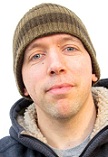
"It’s important to me that my books are as authentic as possible and there’s nothing better than first hand research. Having said that, the story must come first, so I try not to let the research take over or get in the way. I try not to overlook reality in order to make the story work, but they do say you should never let the truth get in the way of a good story!" - Dave Cousins, author of 15 Days Without a Head.

"I usually research points online, like a suicide epidemic. Then I look up different drugs, or I ask doctor friends for finer details. If I can't use an exact item, I try to imagine something that's close enough to real that makes it almost possible." - Suzanne Young, author of The Program.
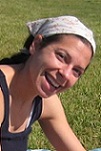
"I draw on experiences I've actually had and supplement those with images online, pictures in books, videos, etc. I find images really helpful. The book I'm working on now is set in Colorado, so I've been looking at beautiful pictures of Garden of the Gods." - Emma Carlson Berne, author of Never You Let Go.

"Virtually. Pseudoscience isn’t always a bad thing, so long as you’ve got a basic grip on how things work." - Josin McQuein, author of Arclight.
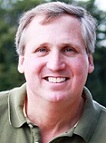
"My stories are very character-driven, so the only research I’ve done so far is for setting. I do some of it physically with my digital camera, and I do some online. So far, my settings have been local so it’s been easy to do research. I once overlooked the fact that my MC was watching the sun set over the ocean on the coast of Maine. Thank God for copyeditors." - Scott Blagden, author of Dear Life, You Suck.

"Physically when I can. I'm going to Hawaii this summer for a book idea I have, that's how tough this research thing is. I have tweaked things to suit my purposes, but I usually fictionalize names of places to allow me to do so." - Lindsey Leavitt, author of Going Vintage.
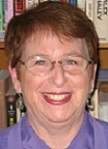 "As a librarian, I embrace research with great enthusiasm and energy. I'm comfortable and happy and nourished in libraries. So, I read, interview, travel, unravel info, and ultimately try to reconcile conflicting or contradictory data. And yes, I do some research online, but that's only a starting place. I dig much deeper and take thousands of notes, much of which will never appear in the book. But all of it is necessary to set the details of time, place, and character. The second part of the question is more interesting: do I ever overlook a finding to make a story work. It kills me, but sure I do it. That's why it's called fiction." - Lois Ruby, author of Rebel Spirits.
"As a librarian, I embrace research with great enthusiasm and energy. I'm comfortable and happy and nourished in libraries. So, I read, interview, travel, unravel info, and ultimately try to reconcile conflicting or contradictory data. And yes, I do some research online, but that's only a starting place. I dig much deeper and take thousands of notes, much of which will never appear in the book. But all of it is necessary to set the details of time, place, and character. The second part of the question is more interesting: do I ever overlook a finding to make a story work. It kills me, but sure I do it. That's why it's called fiction." - Lois Ruby, author of Rebel Spirits.
Come back next week to find out what the authors have
learned from the publishing industry.
learned from the publishing industry.
GIVEAWAY
U.S. Only


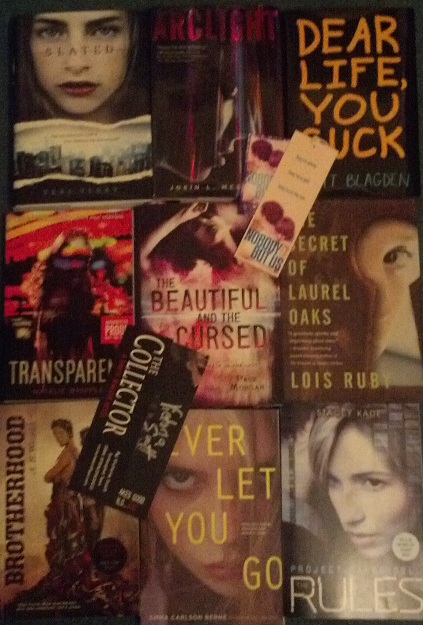







































Wow, it sounds like most of these authors are really dedicated to their research! I love when I read books where it's obvious how much work the author put into the the story, including how factual some things are. Thanks so much for sharing!
ReplyDeleteI like reading the authors bits every day. Very interesting. Thanks.
ReplyDelete